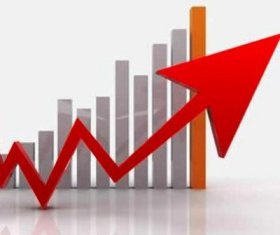
The year-on year inflation rate in August rose to 15.9 per cent up from 15.3 per cent July record, on the back of increases in non-food inflation rate, Deputy Government Statistician, Mr Baah Wadieh, said on Wednesday.
The monthly change rate in August 2014 was -0.2 per cent compared to the 1.6 recorded in July.
Mr Wadieh said a price change in the non-food items was the driving force for the rise in the inflation rate.
He said the year-on-year non-food inflation rate for August 2014 was 24.0 per cent compared to 23.1 per cent recorded for July 2014.
“The year-on-year non-food inflation rate is more than four and half times higher than the food inflation rate,” Mr Wadieh said.
He said the year-on-year inflation rate for imported items was about one and half times higher than the inflation rate for locally produced items.
Mr Wadieh said the main drivers for the non-food inflation rate were housing, water, electricity, gas and other fuels.
The “price drivers” for the food inflation rate were mineral water, soft drinks, fruits and vegetable juices, among others.
The Central Region recorded the highest regional year-on-year inflation rate with 20.4 per cent while the Upper West Region recorded the lowest with 12.3 per cent.
The inflation rate for Greater Accra Region was the same as the national average of 15.9 per cent.
Economists explain inflation is the percentage change in the value of the Wholesale Price Index (WPI) on a year-on year basis. It effectively measures the change in the prices of a basket of goods and services in a year.
Inflation is said to occur due to an imbalance between demand and supply of money, changes in production and distribution cost or increase in taxes on products.
Consequently, when the price level of goods and services rises, the value of the currency also reduces. Therefore, each unit of currency buys fewer goods and services, thus impacting on consumers.
However, a moderate level of inflation is said to characterise a good economy.
Some experts believe that an inflation rate of two or three per cent beneficial for an economy as it encourages people to buy more and borrow more, because during times of lower inflation, the level of interest rate also remains low.